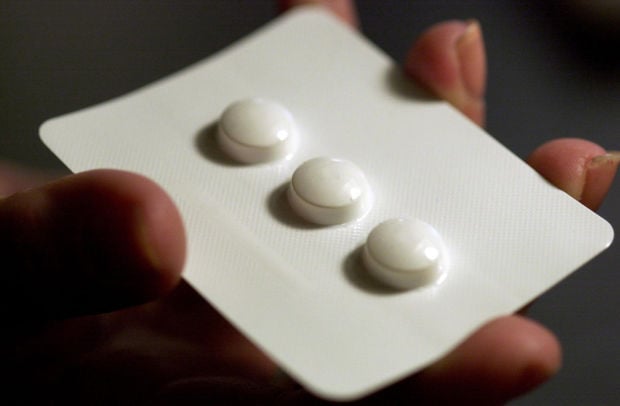PHOENIX — Gov. Doug Ducey is going to get a chance to sign three new measures designed to restrict abortion and the practices surrounding it.
The House on Thursday gave final approval to three measures:
- Outlawing experimentation on tissue from aborted fetuses;
- Limiting less-intrusive medication abortions to the first seven weeks of pregnancy;
- Locking Planned Parenthood out of a payroll deduction plan for state employees.
Ducey is likely to sign all three.
He has pronounced himself strongly in the “pro-life” camp. He signed a different abortion restriction last year.
And Ducey himself administratively imposed the ban on donations to Planned Parenthood last year.
The measure on fetal experimentation, SB 1474, arose in the weeks after the posting of undercover videos that appear to show officials from Planned Parenthood discussing the sale of fetal tissue.
Abortion foes and supporters continue to argue about the accuracy of the videos. But they have been enough to drive this legislation.
“If you deal with the videos about Planned Parenthood, it’s very evident to me that this buy and sell of fetal tissue is going on,” said Rep. Eddie Farnsworth, R-Gilbert. But he said the measure is not dependent on the videos.
“This is something we feel is inappropriate, which is to harvest body tissue from the fetus,” he said.
Planned Parenthood Arizona said it does not sell or donate fetal tissue, though Bryan Howard, the group’s president, acknowledged that is not the case in other states. But Farnsworth said it doesn’t matter if it’s not occurring here, saying this legislation will ensure that it does not happen because it will be a crime.
Rep. Stefanie Mach, D-Tucson, focused on the part of the legislation that bans all experimentation on any tissue from an abortion
“Why wouldn’t you want to use that fetal tissue to help save lives in the case of all the research that goes into Huntington’s and Alzheimer’s and a myriad of other tragic and horrible diseases that lead to a loss of life?” she asked.
Farnsworth said fetal tissue research has fallen out of favor as efforts to cure diseases with that have not produced results.
“Secondly, we have to decide what we think is valuable,” he said. “It doesn’t make any sense to me to support harvesting fetal tissue to try to support somebody else who is sick.”
And Farnsworth said he does consider this to be more than mere tissue.
“My philosophy is that you have babies that are babies,” he said. “They are just unborn.”
SB 1474 was approved on a 41-17 vote.
The vote on the bill limiting medication abortions was closer, passing 32-26.
SB 1324 seeks to tell doctors they can use RU-486 to terminate a pregnancy only according to the label directions approved by the U.S. Food and Drug Administration. That label says it should be used only through the first seven weeks of pregnancy.
But neither FDA regulations nor federal law preclude doctors from “off-label” use. And Planned Parenthood physicians have concluded that the drug is effective through the ninth week, and at a smaller dose.
Rep. Jill Norgaard, R-Phoenix, did not dispute that. But she said the FDA approved the use of RU-486 under special rules she said are reserved for “higher-risk” drugs, which is why doctors should be barred from using it in Arizona beyond seven weeks.
But Rep. Regina Cobb, R-Kingman, said doctors have since discovered that the seven-week limit makes no medical sense.
Even if Ducey signs this measure, it will not take effect for some time. That is because a federal appeals court has issued a temporary injunction against a similar 2012 law after finding that its provisions impair access to an abortion without doing anything to protect women’s health.





